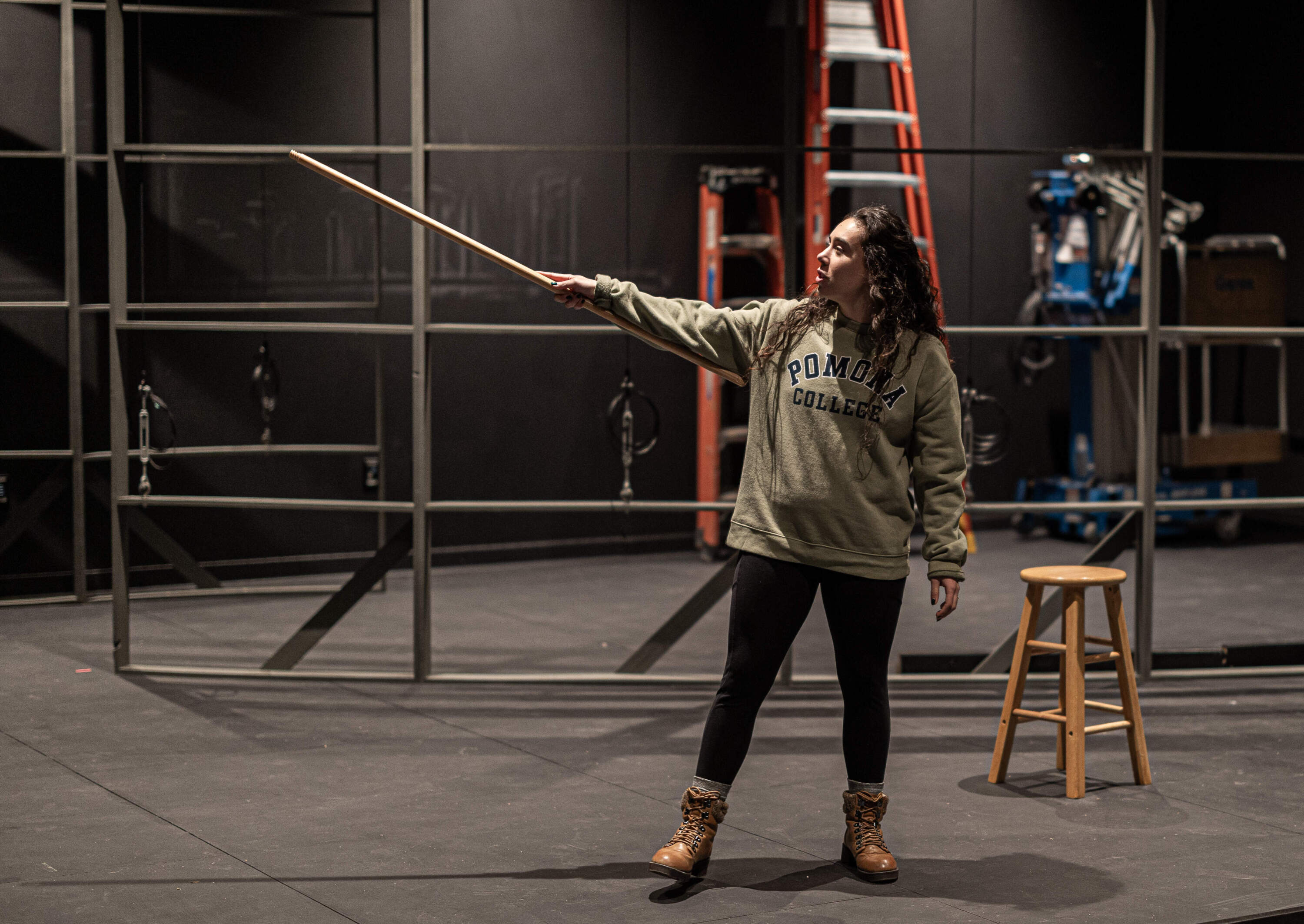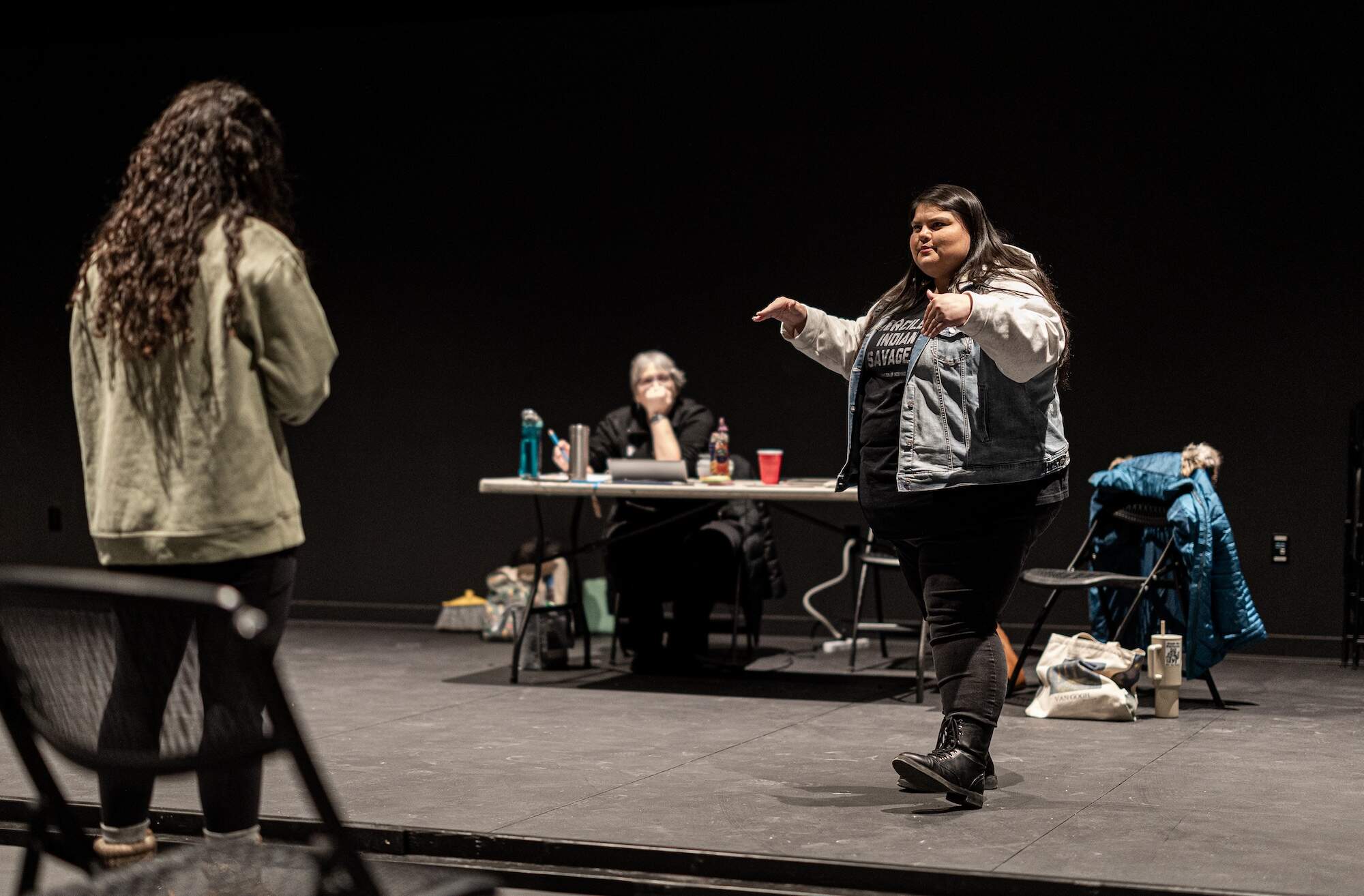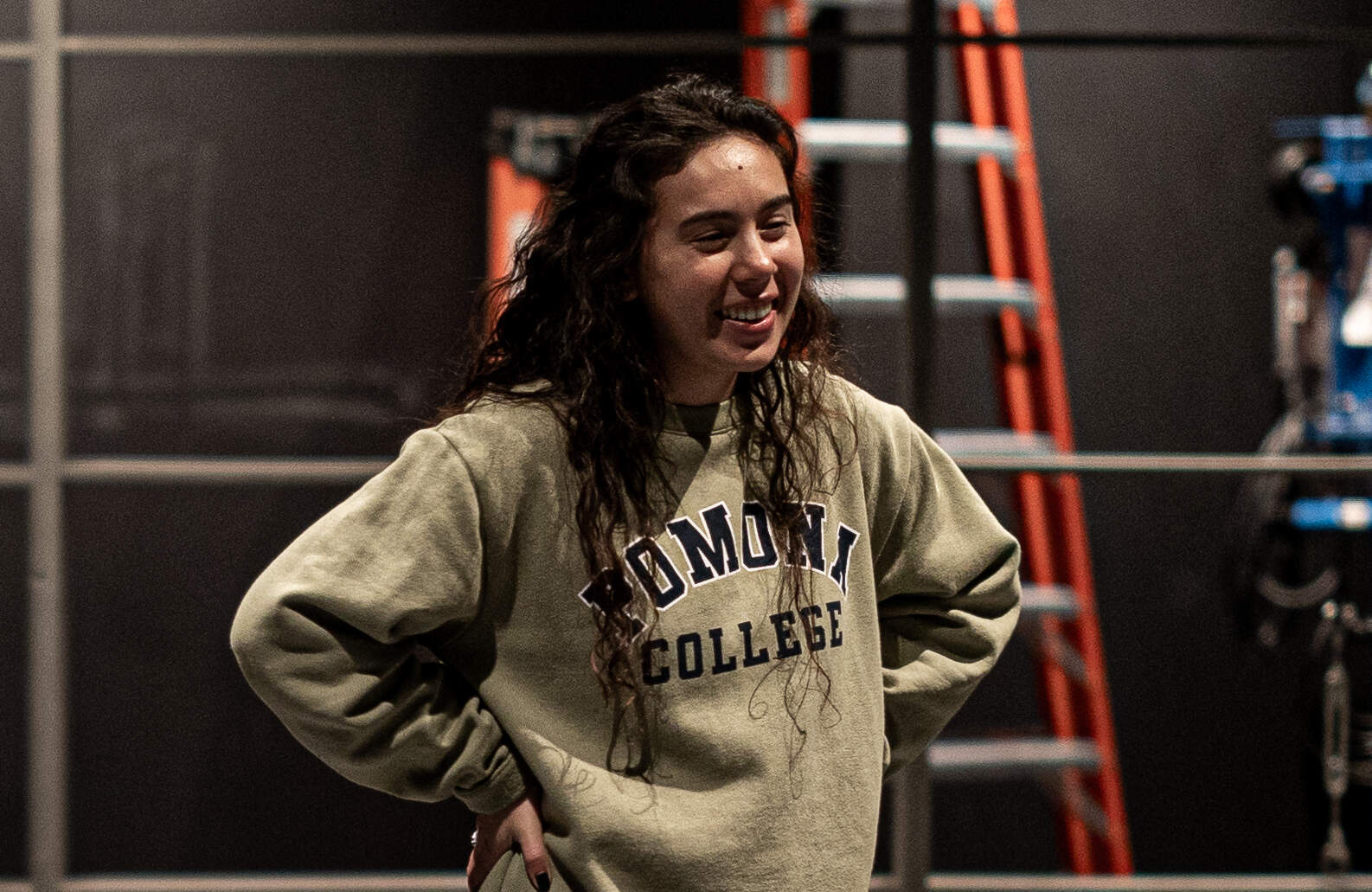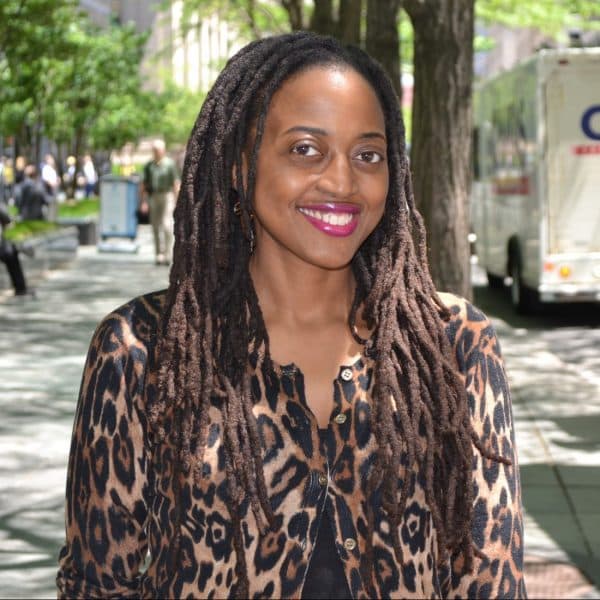Advertisement
Indigenous one-woman show seeks a sense of belonging

The exploration of life’s big questions propels Madeline Sayet’s work.
The actor, director and playwright’s autobiographical play “Where We Belong” falls in line with that philosophy of questioning. The one-woman show will have its New England premiere at the Umbrella Arts Center Feb. 28-March 23. The production uses humor and research to share how her journey to England in pursuit of a doctorate in Shakespeare led her on a path of self-discovery. The trip, one her ancestor also took in the 1700s, pushes her to contend with history, colonialism and her quest for belonging.
But the question of where one fits, might not have a clear answer.
“I intentionally tend to structure pieces around unanswerable questions,” said Sayet, a member of the Mohegan tribe in Connecticut.

Onstage at Umbrella Arts, the investigation of belonging in the production starring GiGi Buddie (Tongva and Mescalero Apache) in the lead role as Achokayis, will be directed by Tara Moses, a citizen of the Seminole Nation of Oklahoma. Moses is also a playwright, and her show “Haunted,” which she directed, just finished a run at Company One Theatre. The clever horror comedy about two ghost siblings haunting families that move into their former home is really about the Land Back Movement, an effort led by Indigenous people to reclaim land.
Moses shared that her play and “Where We Belong” are in conversation with each other.
Moses was involved in the early development of Sayet’s show, during which Sayet gathered five Native people from across the country. Moses, and the other four creatives, got a chance to embody the lead role.
“Haunted” is site specific to New England. And, Moses said, when thinking about it, “Where We Belong” like “Haunted,” is “so much about land. And specifically Mohegan in Connecticut. There’s such an intertwined history in New England, with so many tribes.”
Advertisement

In addition to the focus on land, Moses said, she’s also thinking about the timing. “What does it mean to bring this [play] to New England for the first time, in Concord, on the 250th Anniversary of the American Revolution?”
“Where We Belong” is one of many offerings that will center the creative work and narratives of people of color for the 250th anniversary of the American Revolutionary War. The Umbrella Arts Center and other local partners plan to feature an exhibition of work by Nipmuc photographer, Scott Strong Hawk Foster (whose work will be up during the run of “Where We Belong”), an indoor/outdoor installation of artwork by Black artists such as Ifé Franklin, Stephen Hamilton, and Ekua Holmes inspired by little-known narratives of Black residents in Concord, and a new documentary about the history of slavery in the Concord region, among others.
The staging of “Where We Belong” feels particularly germane as the president’s executive orders have stopped special observances for people of color and deemed diversity, equity and inclusion practices illegal and discriminatory. To some, these changes might feel like a restoration of balance; for others, it might feel like the undoing of hard-won progress and further exclusion.
When Sayet wrote “Where We Belong,” she thought it would be a period piece. But it seems that the “exploration of divides that’s in it has gotten more relevant in a way that’s somewhat frightening,” she said.
She noted the play, which started off more like a long journal entry, examines “how these divides get built over time between people, and how arbitrary are they as a juxtaposition to finding points of connection instead.”

The show shares more about the lives of Mohegan pastor Samson Occom, Uncas, a Mohegan chief, and Sayet’s ancestor Mahomet Weyonomon, who traveled to England in 1735 to ask the king for better treatment of his people. It also delves into language, both Mohegan and Shakespearean, and analyzes what languages are lifted up or erased over time.
Sayet is glad she had access to Shakespeare, but she didn’t grow up with her Mohegan language, which made it difficult to communicate certain things.
“There’s a gap between my head, my heart, and my tongue,” she said. “I would be taught these concepts, but I wouldn’t be able to put it into words because English didn’t quite make room for the way of thinking that I had been raised with.”
She said that while English has more possession, binary and separation, Mohegan has more animacy. This means that more things can be considered to have life and, therefore, more possibility. Figuring out what’s possible is something that Sayet and Moses, who have a long history of working together, think about.
Sayet aspires to “gather people together in ways where they can ask questions that help them understand where they came from and where they’re going.” She’s also concerned with the stories passed down and how these stories can help inform our collective possible future and help us understand each other better.
Moses, who also co-founded Groundwater Arts, is focused on getting to “a decolonized future faster” through “igniting action and furthering liberation in all the ways that exist.” For “Where We Belong,” she added, “Liberation is self-discovery, unapologetic identity, and determined paths forward towards reclamation and rematriation.”
But it won’t be easy. As Sayet explained, the questions posed in both “Where We Belong” and in life don’t always have clear answers. As the narrative unfolds onstage, complicated subject matter will be broached.
As the director, Moses intends to “subvert the sentiment” that exists rather than focusing too heavily on the historical traumas and leaning on emotional responses from the audience.
That doesn’t mean that she will gloss over it.
But audiences, particularly those from settler legacies, should arrive ready to be challenged, Moses said.
“They will certainly experience colonial rage toward them, which is justified and needed,” she said. “They should also trust that they will be held and taken care of.”
The Umbrella Arts Center’s production of “Where We Belong” runs Feb. 28-March 22.
